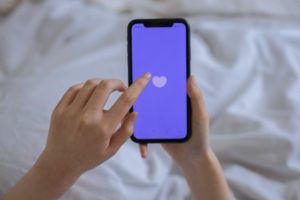The pandemic has changed the way we date:
It’s safe to say that the pandemic has changed almost everything about our lives, and dating is no exception. In honour of Valentine’s Day 2021, I thought it would be interesting to talk about all the ways dating has changed over the past year in lock-down.
When I think about it, dating hasn’t been changed this dramatically since 1960, when the birth control pill came on the market and revolutionized the way couples came together.
Isolation has been a major aspect of the pandemic and with it, people are rethinking how they want to interact with one-another. Many of us are less willing to have superficial conversations. We’re craving deeper, more meaningful interactions — in part, to compensate for the fact that these interactions are mainly virtual.
During the pandemic, a lot of people have been spending time contemplating what really matters, and we’re less tolerant of time-wasting pastimes like idle banter and meaningless boasting or name-dropping. When we have human contact we really want it to count, so that means being authentic and vulnerable as opposed to glib and superficial.
Meeting in-person is a much less safe option than meeting online, so in the absence of a quick hook-up, people are starting to connect more on an emotional level, through substantive conversations and gradual self-revelation.
The pandemic has given rise to new dating trends:
According to a recent article about dating trends in Refinery 29 by Molly Longman, some new dating trends have arisen due to Covid. These include “hardballing,” which Ms. Longman describes as “not messing with partners who aren’t serving you,” and having “more confidence to say what is and isn’t right” when you’re dating.
Another trend explored in this article is “slow dating,” which is described as taking the time to get to know the other person before deciding to meet for a socially distanced date, and because of the real risks involved, being a lot more picky about who they’ll eventually meet.
In the absence of physical contact, we can no longer jump right to kissing and cuddling so we’re forced to actually get to know one-another. Interestingly, many of us are discovering that we prefer dating this way.
Flirting used to consist of a wink, a smile, some playful banter and little touch here or there. In the absence of physical contact — or even physical presence — flirting has had to evolve and become more sophisticated.
People are now paying close attention to one-another. The new flirting is demonstrating how well one person can “get” the other. Being understood and appreciated is the new turn-on.
In an article for Vogue by Kerry McDermott, the author quotes Logan Ury, the director of relationship science at the dating app Hinge, as saying that “video chatting actually lends itself to more meaningful dating,” and that a third of their users were open to starting an exclusive relationship with someone they’d only dated virtually, with an even greater percentage of men – 43% – saying that they’d be good with this.
Intimacy is defined as “seeing and being seen.” For many of us, that’s scary. We’re afraid that if the other person gets to know our true selves, they might not like what they see. So we put on masks and we engage in behaviour meant to deflect or distract, like being a people-pleaser, or jumping right to sex.
These days, however, it’s much scarier to contemplate actual physical contact, and with all the isolation and loneliness, people have a lot less patience for social masks. Like it or not, the pandemic is forcing us to show each-other who we really are.
We have to risk rejection, but if it works out, we know for sure that the other person likes us for our genuine self and we can relax and enjoy the ride. The pay-off for being real is enormous and the risks are minimal.
We can be reassured that if the other person isn’t interested in us, it could mean that the two of us are just not a good fit, or it’s possible that the other person has issues with intimacy. At any rate, we can see that it’s not our problem. And that’s a huge relief.
There’s little room for ambivalence these days:
People with commitment issues might be having more of a tough time dating, these days. Their potential partners are likely to be far less tolerant of their emotional dithering. And that’s a good thing.
If these ambivalent individuals aren’t sure about what they want, the annoyed responses of their potential dates should be enough to force them offline to sort out their issues before they get back into dating.
Another annoying subgroup from pre-Covid times is the serial daters who used online dating as a way to go on as many dates as possible. These individuals figured that there was an infinite supply of potential hook-ups out there and they were determined to sample everything that was on offer.
Of course, the people with whom they hooked up were often left disappointed or worse, after they’d enjoyed what seemed like a great connection only to never hear from this person again.
Now, with social isolation, serial daters are starting to feel the pangs of being on their own so much. Some of them are so uncomfortable with the solitude that they’re actually investing in a single relationship and, surprise, surprise, they’re finding it much more fulfilling than their previous behavior.
Here in Canada, with the vaccine roll-out being so dismally slow, it might be another year or more before we’re able to get back to old-fashioned, in-person dating. And after two years of these changes in our dating attitudes and behaviours, it’s possible that some of the new ways of dating might stick. And that wouldn’t be such a bad thing.
Taking the time to get to know each-other; being open and honest about who we are; putting emotional intimacy ahead of sex – these are all great ways to improve our chances of creating lasting and fulfilling connections. Who knows? The Covid-19 pandemic might be the best thing to happen to dating since the advent of the birth control pill.
__
Sign up here for my free biweekly wellness newsletter that brings you fresh, thought-provoking content.
Subscribe to my YouTube Channel where you’ll learn simple tips for taking the best care of yourself and your loved ones.
Tune in to my Ruthless Compassion Podcast where I go in-depth about topics like mental health, trauma, and loneliness.





